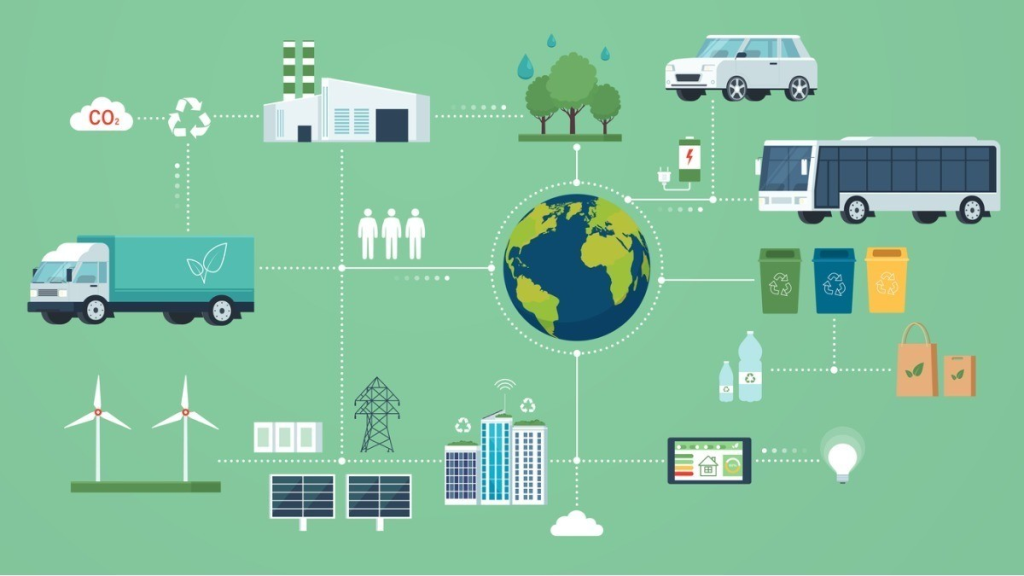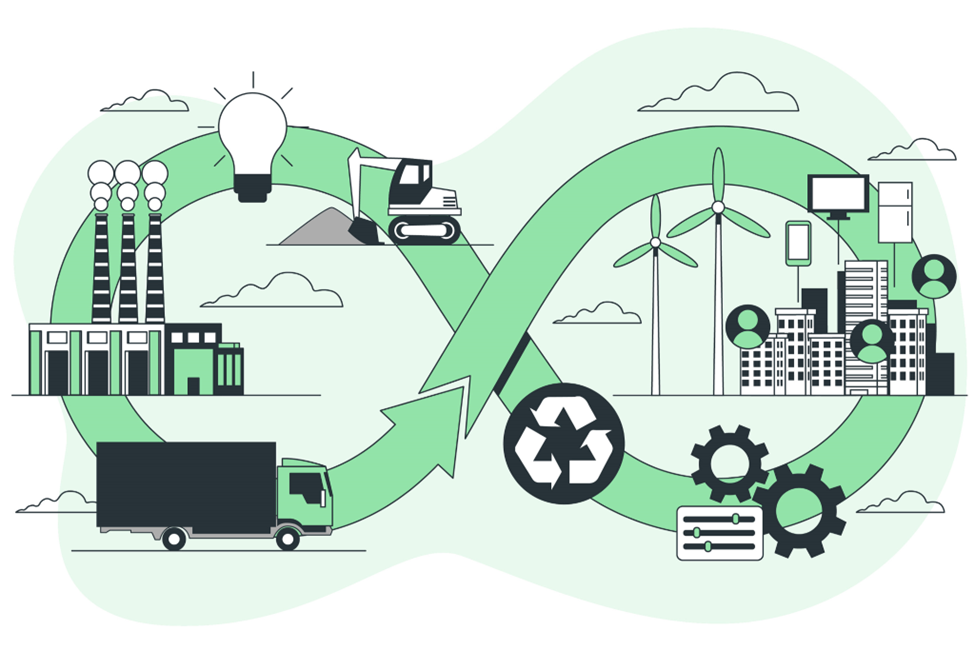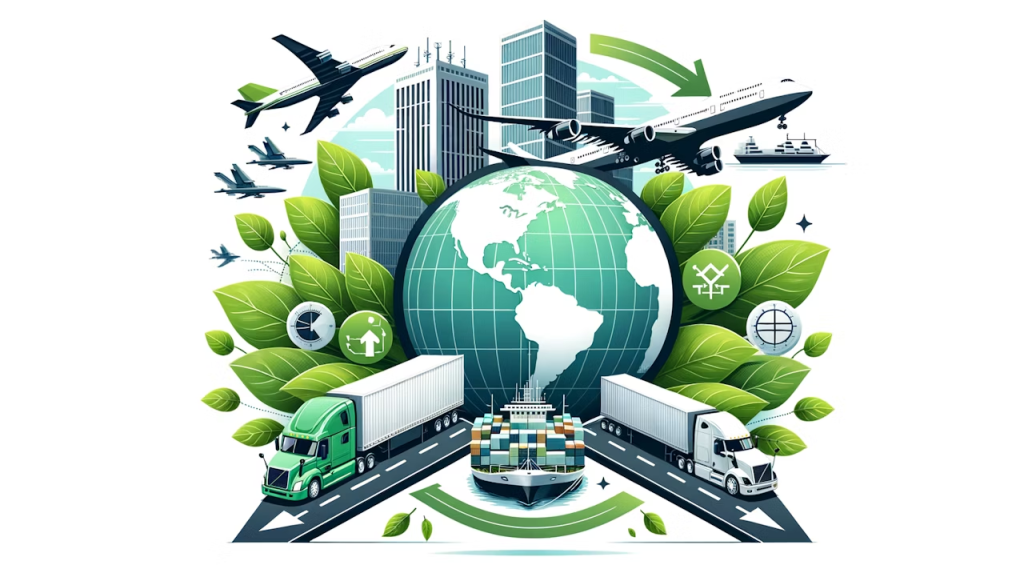In today’s world, sustainability has become a crucial consideration in various industries, and modern retail logistics is no exception. It plays a significant role in shaping the way retailers operate and interact with the environment. Let’s explore the different aspects of how sustainability influences modern retail logistics.

I. Environmental Impact Reduction
A. Reducing Carbon Emissions
- Eco-friendly Transportation Options
Modern retail logistics is increasingly adopting eco-friendly transportation methods. For example, some retailers are switching from traditional diesel trucks to electric or hybrid vehicles. These vehicles produce fewer emissions, helping to reduce the carbon footprint of the supply chain. A large clothing retailer might use electric delivery vans for its last-mile deliveries in urban areas, thus cutting down on harmful pollutants. - Optimizing Delivery Routes
Sustainable logistics also involves optimizing delivery routes. By using advanced route planning software, retailers can ensure that their vehicles take the most efficient paths. This not only saves fuel but also reduces the time spent on the road, thereby minimizing emissions. For instance, a grocery delivery service can analyze traffic patterns and customer locations to plan routes that avoid congestion and unnecessary detours.
B. Minimizing Packaging Waste
- Using Sustainable Packaging Materials
Retailers are now paying more attention to the materials used for packaging. They are increasingly choosing sustainable options such as recycled cardboard, biodegradable plastics, and paper-based packaging. A beauty product retailer might package its items in boxes made from recycled paper and use biodegradable bubble wrap instead of traditional plastic ones. - Reducing Excessive Packaging
Another aspect is reducing excessive packaging. Some retailers are adopting minimalist packaging designs, ensuring that only the necessary amount of packaging is used. For example, a tech company might streamline the packaging of its products, eliminating unnecessary layers and inserts, which not only reduces waste but also saves on material costs.
II. Cost Savings and Efficiency Improvement
A. Energy Efficiency in Warehouses
- Upgrading Lighting and Heating Systems
Sustainable practices in retail logistics include upgrading warehouse lighting and heating systems. Many warehouses are now installing energy-efficient LED lights, which consume less electricity and have a longer lifespan. Additionally, they are using smart heating and cooling systems that adjust based on the temperature and occupancy of the space. This helps to reduce energy costs significantly. - Implementing Renewable Energy Sources
Some forward-thinking retailers are also implementing renewable energy sources in their warehouses. For example, they might install solar panels on the roof to generate electricity. This not only reduces their reliance on non-renewable energy but also provides long-term cost savings as the cost of renewable energy continues to decline.

B. Supply Chain Optimization
- Inventory Management for Sustainability
Sustainable retail logistics involves efficient inventory management. By using data analytics and forecasting tools, retailers can better predict demand and avoid overstocking. This reduces the need for excessive storage space and the associated energy consumption. A furniture retailer can use sales data from previous years to accurately forecast demand for different furniture items and adjust its inventory levels accordingly. - Collaboration with Sustainable Suppliers
Retailers are also collaborating with suppliers who prioritize sustainability. This ensures that the products they source are produced in an environmentally friendly way. For example, a food retailer might work with local farmers who use organic farming methods, reducing the use of pesticides and fertilizers. This not only benefits the environment but also helps the retailer meet the growing demand for sustainable products.
III. Meeting Consumer and Stakeholder Expectations
A. Consumer Demand for Sustainable Products
- Increasing Awareness among Consumers
Today’s consumers are more aware of environmental issues and are demanding sustainable products. They are also paying attention to how products are sourced and delivered. Retailers that can demonstrate sustainable practices in their logistics operations are more likely to attract these environmentally conscious consumers. For example, a consumer might choose to buy from a clothing brand that uses sustainable packaging and carbon-neutral delivery methods. - Brand Reputation and Loyalty
Sustainable logistics can enhance a retailer’s brand reputation. When consumers see that a retailer is committed to sustainability, they are more likely to develop a positive perception of the brand and become loyal customers. A well-known electronics retailer that invests in sustainable logistics is likely to be seen as a responsible company, which can lead to increased customer loyalty and repeat business.
B. Stakeholder Requirements and Regulations
- Meeting Government Regulations
Retailers are also facing increasing government regulations related to sustainability. They need to comply with laws regarding emissions, waste management, and energy consumption. By implementing sustainable practices in their logistics operations, retailers can ensure that they meet these regulations and avoid potential fines. For example, a large retailer might invest in technologies to reduce its emissions to comply with local environmental laws. - Satisfying Investor and Partner Expectations
Investors and business partners are also placing more importance on sustainability. Retailers that can demonstrate sustainable logistics practices are more likely to attract investment and build strong partnerships. A retailer that has a clear sustainability strategy in its logistics operations may be more appealing to investors who are looking for environmentally responsible companies to support.

In conclusion, sustainability plays a multi-faceted role in modern retail logistics. It helps in reducing the environmental impact, improving cost efficiency, and meeting the expectations of consumers and stakeholders. As the world continues to prioritize environmental protection and sustainable development, retailers that embrace sustainability in their logistics operations will be better positioned for long-term success in the market.





